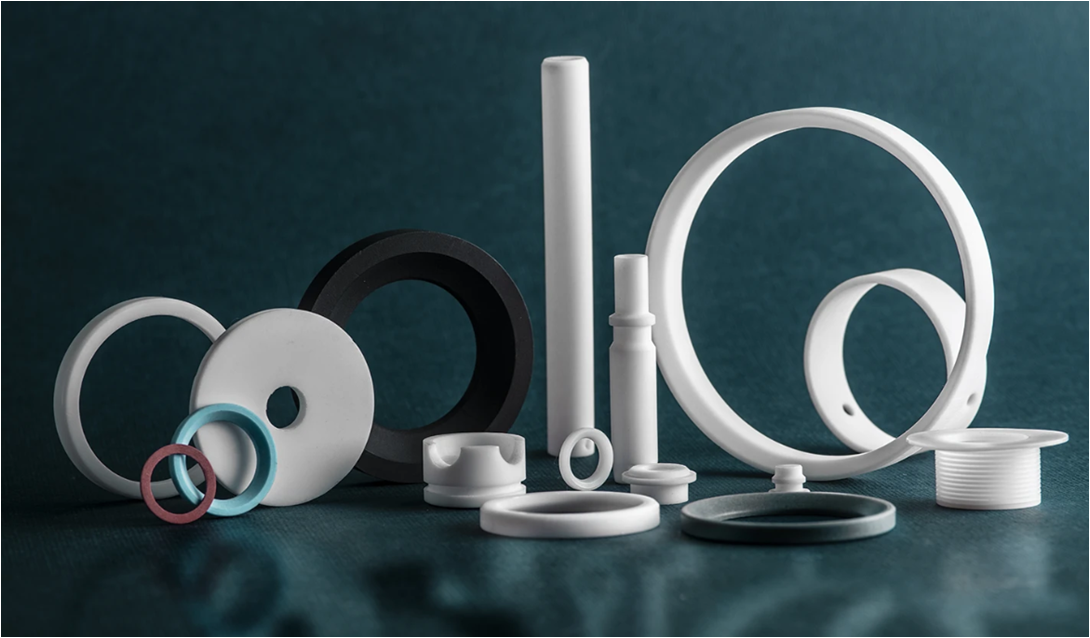Categories
PTFE Seals
Category:
Oil Seal
- Product Description
-
- Commodity name: PTFE Seals
- Commodity ID: LANHE-00100118
PTFE Seals Polytetrafluoroethylene (PTFE) Seals TEFLON? Seals PTFE Shaft Seals PTFE Oil Seal Stainless Steel PTFE Metal Oil Seal
When rubber seals falls short of meeting the sealing requirements, Polytetrafluoroethylene (PTFE seals) steps in as the ultimate alternative. PTFE is a material that can be molecularly modified to enhance characteristics such as deformation, dielectricity, transparency, weldability, and hot formability. Furthermore, it can be loaded to improve deformation characteristics, limit wear, expansion, and conductivity.
The strength of PTFE lies in its ability to minimize friction; it is a self-lubricating polymer, dielectric, resistant to solvents and aging, capable of withstanding extreme temperatures ranging from -200°C to +260°C.
Thanks to these features, we can produce seals resistant to high temperatures, acids, and solvents.Polytetrafluoroethylene (PTFE) is a high molecular weight polymer, consisting of Fluorine and Carbon atoms, making it one of the most versatile plastics for applications not accessible to other materials. PTFE is produced from tetrafluoroethylene monomer (TFE) using two different polymerization techniques: granular PTFE from suspension polymerization, and fine powders coagulated or dispersions from dispersion polymerization.
PTFE Seals Distinctive characteristics:

Chemical Properties of PTFE seals
1. Chemical Inertia:
PTFE is inert to the vast majority of known chemical reagents, ensuring exceptional corrosion resistance.2. Insolubility:
up to temperatures of 300°C, PTFE remains insoluble, ensuring its stability even in extreme environments.3. Biocompatibility and Food Safety:
FDA-certified for food contact, PTFE offers maximum safety in various sectors, including medical and food.4. UV Resistance:
PTFE maintains its integrity even when exposed to UV rays, ensuring prolonged durability.5. Non-flammability:
thanks to its inert nature, PTFE is inherently non-flammable.6. Total Hydrophobicity:
PTFE completely repels water and other liquids, ensuring reliable protection against moisture.
Electrical Properties of PTFE seals
1. Excellent Dielectric Qualities:
PTFE offers exceptional electrical resistance at various temperatures and frequencies.2. High Surface and Volume Resistance:
it provides reliable performance even in high-voltage environments.3. High Dissipation Factor:
PTFE maintains its electrical stability even under extreme conditions.Mechanical Properties of PTFE seals
1. Anti-adhesion:
PTFE offers a low coefficient of friction, even under high loads, reducing wear and improving efficiency.
2. Wide Operating Temperature Range:
it can be used in a wide range of temperatures without compromising its performance.
3. Excellent Workability:
easy to work with and adaptable to various shapes and applications.Thermal Properties of PTFE seals
1. Low Thermal Transmission Coefficient:
PTFE offers effective thermal insulation, maintaining constant temperature in various environmental conditions.2. Loaded PTFE:
loaded PTFE combines the exceptional properties of virgin PTFE with additional advantages, such as increased compression resistance, improved thermal conductivity, and reduced tendency to creep under load.
Previous
Next
Previous
Next
MESSAGE


